About Turning Leaf – Residential Rehabilitation Services
They also specialize in treatment of dual diagnosis cases, which means cases where the client not only suffers from drug or alcohol addiction, but from co-occurring mental health conditions, as well. This is a broad concept because mental illness can range from conditions like depression, anxiety disorder, bipolar disorder, PTSD, and schizophrenia. Still, it’s important to treat mental illness in many cases when dealing with addiction.
This clinic offers certain varieties of residential care, including their residential treatment program, their secured residential treatment program, and their community housing or supported independent living program. Residential care means that you’ll be living at this facility, but they make sure to make it a cozy experience so that you feel at home. Perhaps the biggest benefit of residential care is that you’ll have access to the professional medical supervision of their staff 24 hours a day. That means you’ll never feel alone or abandoned.
There are many benefits to getting treated in a rehab that focuses on socialization and rehabilitation. You’ll get to know your peers as you prep meals, do household maintenance and activities of daily living, shop for food or other necessities of daily living, laundry, and learn about money management.
In addition to these services, you can receive medication education and medication administration, and learn to build relationships by socializing with your peers and receiving peer support, too. Outdoor excursions via their busline can help you get reconnected with Lansing’s metropolitan downtown, quiet suburbs, or leisurely parks. They offer transportation to and from community activities throughout the state’s capital, so you won’t just be sitting there with nothing to do all day. You can also participate in recreational activities that can make your experience fun and rewarding while you tackle recovery head-on.
Latest Reviews
Rehab Score
Gallery
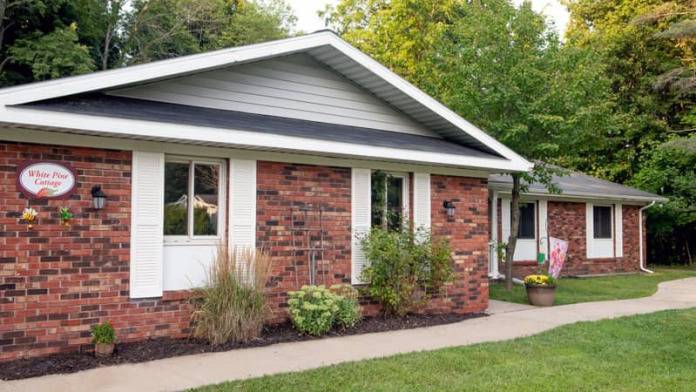
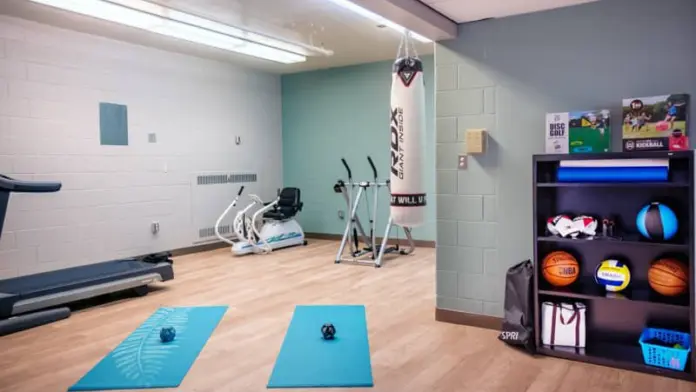
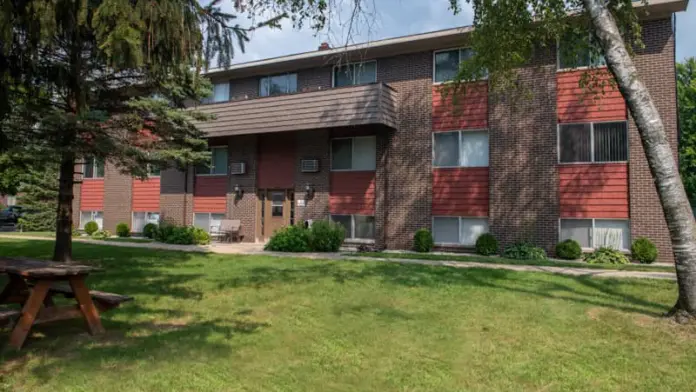
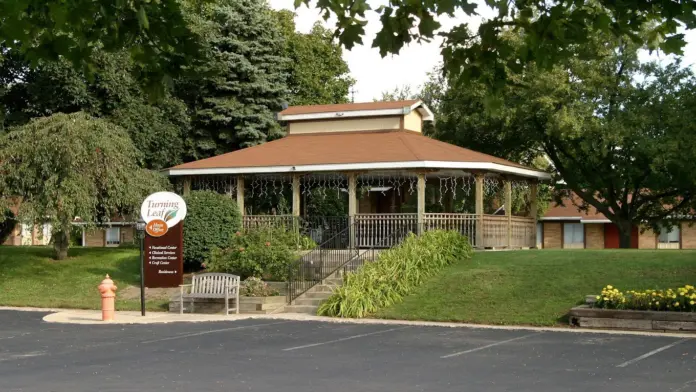
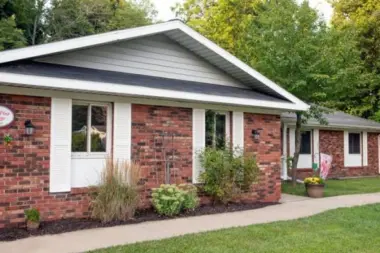
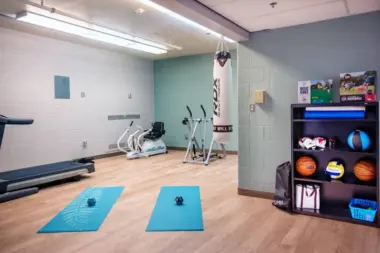
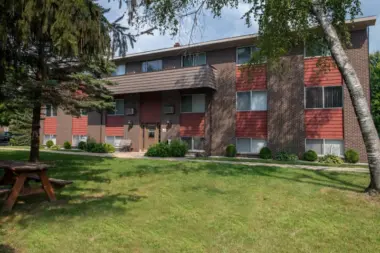
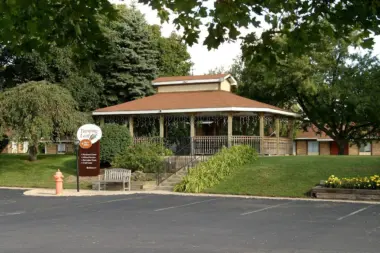
Other Forms of Payment
Medicaid is a state based program that helps lower-income individuals and families pay for healthcare. Medicaid covers addiction treatment so those enrolled can use their coverage to pay for rehab. When a program accepts Medicaid the client often pays very little or nothing out of their own pocket.
Private insurance refers to any kind of healthcare coverage that isn't from the state or federal government. This includes individual and family plans offered by an employer or purchased from the Insurance Marketplace. Every plan will have different requirements and out of pocket costs so be sure to get the full details before you start treatment.
Self-pay involves paying for treatment out of your own pocket. You can use savings or credit, get a personal loan, or receive help from family and friends to fund your treatment. If you don't have insurance or your insurance plan doesn't cover a specific program, self-pay can help ensure you still get the care you need.
Financial aid can take many forms. Centers may have grants or scholarships available to clients who meet eligibility requirements. Programs that receive SAMHSA grants may have financial aid available for those who need treatment as well. Grants and scholarships can help you pai for treatment without having to repay.
Addiction Treatments
Levels of Care
Residential treatment programs are those that offer housing and meals in addition to substance abuse treatment. Rehab facilities that offer residential treatment allow patients to focus solely on recovery, in an environment totally separate from their lives. Some rehab centers specialize in short-term residential treatment (a few days to a week or two), while others solely provide treatment on a long-term basis (several weeks to months). Some offer both, and tailor treatment to the patient's individual requirements.
Treatments
Many of those suffering from addiction also suffer from mental or emotional illnesses like schizophrenia, bipolar disorder, depression, or anxiety disorders. Rehab and other substance abuse facilities treating those with a dual diagnosis or co-occurring disorder administer psychiatric treatment to address the person's mental health issue in addition to drug and alcohol rehabilitation.
Mental health rehabs focus on helping individuals recover from mental illnesses like bipolar disorder, clinical depression, anxiety disorders, schizophrenia, and more. Mental health professionals at these facilities are trained to understand and treat mental health issues, both in individual and group settings.
Programs
Adult rehab programs include therapies tailored to each client's specific needs, goals, and recovery progress. They are tailored to the specific challenges adult clients may face, including family and work pressures and commitments. From inpatient and residential treatment to various levels of outpatient services, there are many options available. Some facilities also help adults work through co-occurring conditions, like anxiety, that can accompany addiction.
Young adulthood can be an exciting, yet difficult, time of transition. Individuals in their late teens to mid-20s face unique stressors related to school, jobs, families, and social circles, which can lead to a rise in substance use. Rehab centers with dedicated young adult programs will include activities and amenities that cater to this age group, with an emphasis on specialized counseling, peer socialization, and ongoing aftercare.
Clinical Services
Experiential therapy is a form of therapy in which clients are encouraged to surface and work through subconscious issues by engaging in real-time experiences. Experiential therapy departs from traditional talk therapy by involving the body, and having clients engage in activities, movements, and physical and emotional expression. This can involve role-play or using props (which can include other people). Experiential therapy can help people process trauma, memories, and emotion quickly, deeply, and in a lasting fashion, leading to substantial and impactful healing.
Group therapy is any therapeutic work that happens in a group (not one-on-one). There are a number of different group therapy modalities, including support groups, experiential therapy, psycho-education, and more. Group therapy involves treatment as well as processing interaction between group members.
In individual therapy, a patient meets one-on-one with a trained psychologist or counselor. Therapy is a pivotal part of effective substance abuse treatment, as it often covers root causes of addiction, including challenges faced by the patient in their social, family, and work/school life.
Amenities
-
Residential Setting
Staff & Accreditations
Staff
Sami W. Al Jallad, MPA
Executive Director
Destiny Al Jallad, MA
Interim COO
Accreditations

The Commission on Accreditation of Rehabilitation Facilities (CARF) is a non-profit organization that specifically accredits rehab organizations. Founded in 1966, CARF's, mission is to help service providers like rehab facilities maintain high standards of care.
CARF Accreditation: Yes
Contact Information
621 East Jolly Road
Lansing, MI 48910